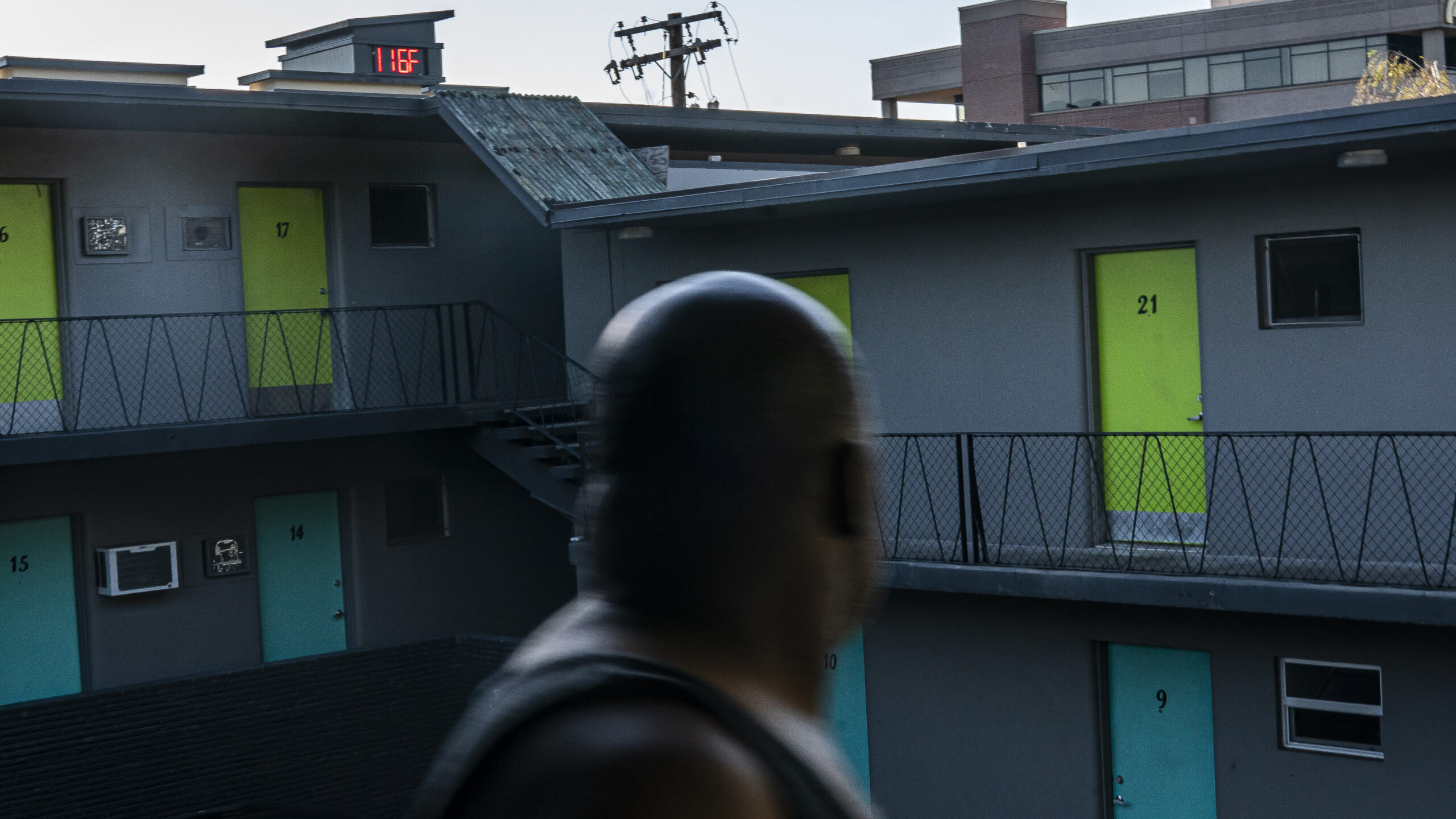Tim Wilson backs working from home as ‘happy workers tend to be more productive’

Josh Butler
Tim Wilson says work-from-home arrangements should be negotiated between workers and employers, shrugging off what he called a “heavy solution” outlined by the Coalition at the May election to end work-from-home for public sector employees.
The controversial policy, which was dumped mid-campaign in an embarrassing Peter Dutton backflip, has been blamed as a major factor in turning off professional women and young people from voting Liberal. The Coalition has indicated work-from-home arrangements shouldn’t be discouraged like this. Wilson, the new shadow minister for industrial relations, told Sky News that workers should “have a sense of ownership and responsibility of their workplace arrangements, in partnership with their employers”.
So if employers can find a pathway where, and employees can find a pathway, together in partnership for working from home because it works in their best interest, then that would always be the baseline at which I’d approach workplace arrangements. It’s not for me to dictate what those terms are.
When it comes to the politics of it, I think a lot of people looked at it and … it was probably interpreted, anyway, as a heavy solution to what should be, for the most part, a productivity managed problem between employers and employees.
Wilson said the WFH policy was raised with him “from time to time” while campaigning for Goldstein, but that equally he had employers who felt they “no longer had a balanced relationship with their employees and wanted redress”. Wilson said the issue should be looked at from a productivity standpoint, about what works best for the business and employees.
We do know that happy workers tend to be more productive, and there’s certainly circumstances where people working from home can be more productive than they might otherwise be.
Because of commute times, because of their capacity to balance out their work and family lives, based on what their needs are, but it can vary circumstance to circumstance.
Key events
The NSW floods were bad enough. But then came the mould, and getting rid of it in winter is ‘almost impossible’
Nadia Zarb can already see, and smell, the mould in her art gallery in Taree. The building on Victoria Street was inundated during flooding that hit the Hunter and mid-north coast of New South Wales at the end of May.
Water filled the storage space below ground, the art supply store on the ground floor, and the loft exhibition space, reaching to just below Zarb’s home on the top level.
Water and mud still lies thick on the lower levels while her property is now filled with spores.
Mould is forming on her art supplies, Zarb says, texting through pictures of wooden art models covered in black and grey mould. It’s also in the walls, and areas she can’t access.
While it’s cold and damp, it’s really difficult to dry things and then you start to get that damp smell and that musty, mouldy odour.
Experts are warning about the “huge problem” of mould in homes and businesses affected by the recent floods. Because they happened in winter, it will be “almost impossible” for many homeowners to dry out their properties and eradicate the dangerous spores, they say.
For more, read the full feature story here:

Josh Butler
Coalition mulls Bradfield challenge
In some morning media interviews, we’ve heard Coalition politicians James Paterson and Tim Wilson asked about the potential for the Liberals to challenge the result in Bradfield – where their candidate Gisele Kapterian lost to Nicolette Boele by just a handful of votes.
Kapterian herself said on Friday she was still considering the result and wouldn’t be drawn on whether she’d push for another challenge. We reached out to the Australian Electoral Commission, who said they’re not involved in this next part, but that the Electoral Act says any such dispute must be lodged within 40 days after the return of the writs for that specific seat.
The writs for Bradfield haven’t been returned yet, and that likely won’t happen for at least a few more days. So Kapterian or the Liberals have 40 days, once the writs are returned, to lodge a petition if they decide to.
Interestingly, it’s not just the candidate who can lodge a petition. The act says “a person who was qualified to vote” at the election can also lodge.
So until the Liberals rule out challenging – we might have more than 40 days still left of this seemingly never-ending process in Bradfield. A reminder we’re now 36 days on from the 3 May election.
Go bold: calls for Australia to lead on ocean health
Acting on the threats of deep-sea mining and climate change are among the asks of environmental groups heading into a global event.
Conservation groups are urging Australia to back a moratorium on deep-sea mining ahead of a major United Nations oceans conference.
More than two dozen countries want a ban, pause or moratorium until more is known about sea floors well below the surface, with concerns the emerging industry could disrupt ecosystems and the ocean’s ability to act as a carbon sink.
Greenpeace Australia Pacific, World Wide Fund for Nature-Australia, the Australian Marine Conservation Society, and the Save Our Marine Life alliance are also pushing the government to ratify the high seas biodiversity agreement by September.
Australia was a founding signatory to the agreement in 2023 and the re-elected Albanese government has promised to ratify its commitment “as quickly as possible”.
The all-important treaty aims to better protect the two-thirds of marine habitat outside state jurisdiction and secure the necessary 60 ratifications will be a key talking point at the UN conference that starts on Monday.
Environment minister Murray Watt will join other policymakers, scientists, First Nations groups and environmental groups at the five-day event in Nice, France, as leader of the cross-government delegation.
– AAP
Tim Wilson backs working from home as ‘happy workers tend to be more productive’

Josh Butler
Tim Wilson says work-from-home arrangements should be negotiated between workers and employers, shrugging off what he called a “heavy solution” outlined by the Coalition at the May election to end work-from-home for public sector employees.
The controversial policy, which was dumped mid-campaign in an embarrassing Peter Dutton backflip, has been blamed as a major factor in turning off professional women and young people from voting Liberal. The Coalition has indicated work-from-home arrangements shouldn’t be discouraged like this. Wilson, the new shadow minister for industrial relations, told Sky News that workers should “have a sense of ownership and responsibility of their workplace arrangements, in partnership with their employers”.
So if employers can find a pathway where, and employees can find a pathway, together in partnership for working from home because it works in their best interest, then that would always be the baseline at which I’d approach workplace arrangements. It’s not for me to dictate what those terms are.
When it comes to the politics of it, I think a lot of people looked at it and … it was probably interpreted, anyway, as a heavy solution to what should be, for the most part, a productivity managed problem between employers and employees.
Wilson said the WFH policy was raised with him “from time to time” while campaigning for Goldstein, but that equally he had employers who felt they “no longer had a balanced relationship with their employees and wanted redress”. Wilson said the issue should be looked at from a productivity standpoint, about what works best for the business and employees.
We do know that happy workers tend to be more productive, and there’s certainly circumstances where people working from home can be more productive than they might otherwise be.
Because of commute times, because of their capacity to balance out their work and family lives, based on what their needs are, but it can vary circumstance to circumstance.

Josh Butler
‘Sense of hope’ behind Goldstein victory, Tim Wilson says
Liberal MP Tim Wilson says he won back the seat of Goldstein after giving constituents a “sense of hope” and long-term vision beyond the immediate cost-of-living crisis.
The new shadow minister, who in 2025 took back the seat he lost to Zoe Daniel in 2022, was on Sky News earlier. Asked how he bucked the national trend, and picked up a seat the Liberals didn’t have, he said:
I think the biggest selling point we put forward to the community was that we were speaking to its hopes and dreams and aspirations.
Wilson claimed it came “at a time where a lot of the political conversation was not appealing to people’s sense of hope”.
I think that there was a very clear sense that we were trying to do something bigger and more urgent than a lot of the focus on trying to solve immediate problems around cost of living, which, of course, were very important.
But they’re connected to getting people to raise their heads up, to look further into the distance and say, ‘We’re not going to achieve or address the problems we’re facing today if it’s not part of a bigger, longer term vision to solve the challenges that face our country’. So we consciously and deliberately went big, bold and ambitious because we knew that it was going to be the basis in which we captured people’s imagination. We captured their sense of hope.
Tasmanian premier Jeremy Rockliff will hold a press conference at noon with former federal Coalition MP Bridget Archer to “make an announcement”.
We will bring you the latest as it developments – for more context of what is taking place in Tasmanian politics, read The Guardian’s previous analysis here:
Cold front brings rain, chilly conditions to nation’s south-east

Petra Stock
Temperatures may not break out of single figures in some parts of south-east Australia on Sunday, according to the Bureau of Meteorology.
Canberra can expect a top of 9C on Sunday, with maximums of 12C in Melbourne and 13C in Adelaide and Hobart.
The chilly conditions were due to a cold front, dragging air from south of Australia, which was expected to pass through Melbourne on Saturday night before moving into eastern Victoria and New South Wales early on Sunday.
BoM senior meteorologist Dean Narramore said:
Melbourne could see quite a lot of rainfall on Sunday. We could see 20 to 40mm through the metropolitan area with heavy rainfall and also cold and showery conditions extending all the way up into the New South Wales ranges.
Then, a slow moving low developing off NSW would spread showers, gusty winds – and in some places, snow – through southeastern Australia into Monday and Tuesday.
Drought-affected South Australia and south-west Victoria could see rainfall totals of 25 to 50mm, from Saturday into Tuesday, he said.
Sunday temperatures would be warmer in the other capitals, with a maximum of 22C for Perth, 16C in Sydney, 23C in Brisbane and 31C in Darwin.
Scott Morrison sought advice to obstruct Nauru asylum seekers from accessing abortions, documents reveal
Scott Morrison overrode medical advice in the case of an asylum seeker in offshore detention trying to access an abortion, and had previously sought advice that would effectively prevent access to terminations entirely, ministerial advice reveals.
Documents released under freedom of information laws show Morrison, in 2014 as immigration minister, had sought advice to deny the transfer of women to a hospital on the Australian mainland to access termination services before 20 weeks’ gestation.
Abortion is illegal on Nauru, except to save the mother’s life, and carries a prison term of up to 14 years. Termination laws differ across Australian states, but if pregnant women in offshore detention were prohibited from accessing abortion services in Australia until after 20 weeks, it would be far more difficult to access those services at all.
A handwritten note by Morrison, on a document dated June 2014, stated: “I would also like advice on denying transfer pre 20 weeks for pregnant women.” In the same document, Morrison specified that women should only be transferred to Brisbane, not South Australia, the Northern Territory or Victoria for abortion services.
For more, read the full report:
NT police confirm death in custody on day of protest against death of Kumanjayi White
Northern Territory police have confirmed a man has died in custody the same day rallies have been planned in protest over the death of Kumanjayi White in Alice Springs.
Police confirmed they were investigating the death of a man at Royal Darwin hospital in a statement on Saturday night.
The 68-year-old man was arrested by Australia federal police at 1pm on 30 May 2025 when he tried to board a plan out of Darwin. Police allege the man was heavily intoxicated.
He was initially held at Palmerston Watchhouse where a medical assessment concluded he should be moved to Royal Darwin hospital.
Upon arrival, AFP officers noticed the man had lost consciousness. Medical staff were alerted and resuscitation efforts were successful. The man was then transferred to the Intensive Care Unit in a stable condition where he received ongoing treatment.
The man died on Saturday. His cause of death currently unknown with an autopsy yet to be performed.
NT police are investigating and will prepare a report for the coroner.

Josh Butler
US tariffs will ‘impact growth’, trade minister says
Trade minister Don Farrell also said Australia was hopeful of extending existing free trade deals with other countries, to help boost wider trade networks even if the United States kept up its tariff regime.
On Sky this morning, Farrell said his discussions with the US and other countries were about removing existing barriers, but also “ensuring that there is a way that countries don’t increase the amount of protectionism”. He’s recently been meeting with the World Trade Organisation and the OECD.
I took the opportunity last week to talk with my European counterparts. I met the French trade minister, the German trade minister, and of course, the most important one, and that is the European trade minister. We had good discussions.
My officials spent a couple of days after the meeting continuing those talks. And I’m hopeful that those countries around the world who do believe free and fair trade can reach agreement, to extend free trade agreements across the globe, so that irrespective of what the Americans might choose to do, we have a greater diversity of trading partners.
Farrell conceded that Donald Trump’s trade tariffs were “inevitably going to impact growth”, not just on nations subject to those barriers, but on the US itself.
So I think it’s incumbent on Australia, on the rest of the world, to say to the Americans, look, these are exactly the wrong policies to adopt. You should be adopting the opposite policies. You should be opening up, opening up your economies.
What we know is, if you’re an outward-facing trading company in Australia, your profits are going to be higher, but more importantly, the wages of your employees are going to be higher. So we say to the Americans, and we’ll continue to say to the Americans, these are the exact wrong policies to adopt.

Josh Butler
Government still pushing for tariff relief, Farrell says
Trade minister Don Farrell says the government is still pushing for the USA to remove all trade tariffs on Australian goods, but could not confirm whether Anthony Albanese will have a face-to-face meeting with Donald Trump this week when the pair visit the G7 meeting in Canada.
In an interview on Sky News, Farrell said he is still telling his American trade counterparts that Australia believes the trading barriers have “no justification”. Farrell, the senator from South Australia, said he’d put that position to the US trade representative, Jamieson Greer, twice in the last week alone.
We want all of the tariffs removed, not just some of them. We want all of them removed. And I made it clear to USTR Greer that we’ll continue to press for the removal of all of those tariffs.
Farrell said it had been “friendly” discussions with Greer, but that he’d come away with the impression from the US trade reps that it would be Trump himself making the final decisions. Albanese will travel to Alberta, Canada this week for the G7 meeting, where it has been speculated that he could meet Trump – either on the sidelines of the G7 meeting, or during a potential stopover in the United States.
Farrell, asked about such a meeting, played coy and wouldn’t say whether such a conversation was locked in. But he said that while Albanese would continue to “push the Australian point of view” in whatever forum, that leader-to-leader meetings weren’t the only part of negotiations.
There’s a range of ways in which we communicate with the United States. Ambassador [Kevin] Rudd, obviously does it. All of our ministers who make contact with their equivalents in the United States make it clear what we want out of the relationship with the United States. And of course, most important, as you say, is the relationship between our prime minister and the president.


